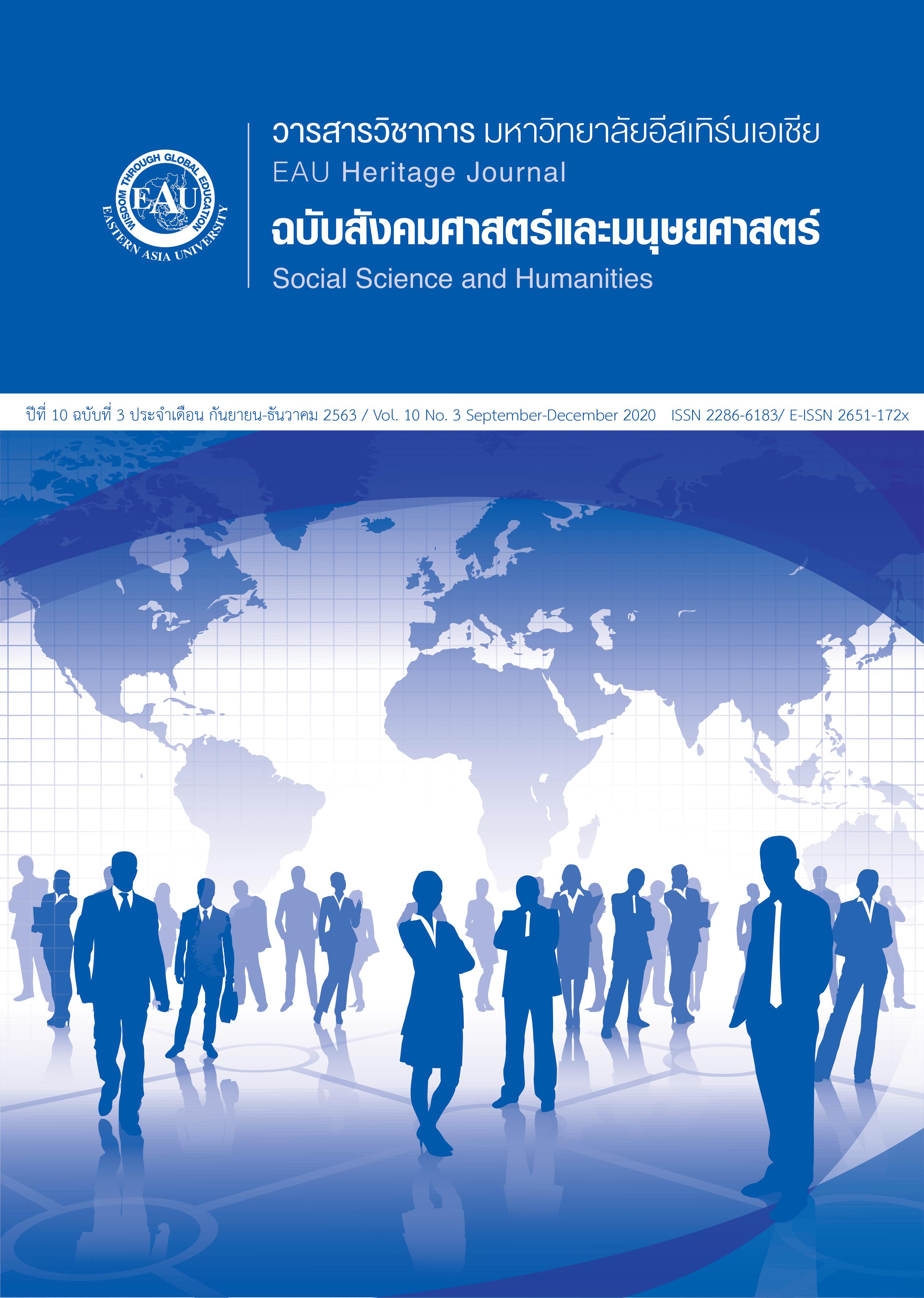Academic Management of Autonomous Public Higher Education Institutions for the Development of Transversal Competencies for Students
Keywords:
The Concept of Transversal Competencies, Academic Management Strategies of Autonomous Public Higher Education Institutions, The Development of Transversal Competencies for StudentsAbstract
This research used the qualitative research. The purpose of this research was to study the conceptual framework of Academic management of autonomous public higher education institutions, and the conceptual framework of Transversal competencies which is a part of the research titled Academic management strategies of autonomous public higher education institutions based on the concept of Transversal Competencies. The research instrument used was the structured interview of the conceptual framework evaluated its appropriateness by 7 experts. The data was analyzed by frequency distribution and content analysis. The findings were as follows. (1) The conceptual framework of Academic management of autonomous public higher education institutions composes of (1.1) Curriculum development, (1.2) Instructional management, (1.3) Student affairs, and (1.4) Learning measurement and evaluation. (2) The conceptual framework of Transversal competencies composes of 5 competency domains with 15 key characteristics including (2.1) Critical and Innovative Thinking; (2.1.1) Creativity (2.1.2) Entrepreneurship and (2.1.3) Reasoned decision-making, (2.2) Interpersonal skills; (2.2.1) Teamwork (2.2.2) Communication skills and (2.2.3) Organizational skills, (2.3) Intrapersonal skills; (2.3.1) Self - awareness (2.3.2) Self - motivation (2.3.3)
Self - discipline and (2.3.5) Flexibility and Adaptability, (2.4) Global Citizenship; (2.4.1) Openness (2.4.2) Respect for diversity and (2.4.3) Intercultural understanding, and (2.5) Media and Information Literacy; (2.5.1) Ability to critically evaluate information and media content and (2.5.2) Digital literacy.





